10 Essential Songs That Reference Other Songs
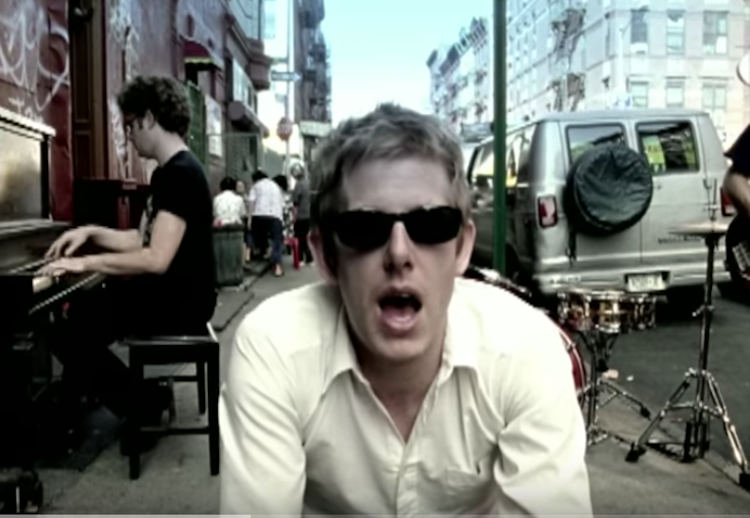
It’s always a pretty safe bet that musicians listen to a lot of other music. Nobody picks up an instrument without any frame of reference—everybody’s music is informed by something else. But there are also plenty of songs in which artists offer even more transparency, name-checking the bands that influenced them and—in the case of this week’s list—songs. There are actually so many examples of this that 10 songs is really just a small sample. We didn’t even get into the self-referential Bowie and Beatles songs! (Though one Lennon joint made it.) Anyone who spends all day on Genius could find many more where these came from, but these 10 songs that reference other songs are some of our favorites, both in their subtly affectionate tributes and in how cleverly they’re executed. All we need is to hear a song we know, within another song.
 John Lennon – “How Do You Sleep?”
John Lennon – “How Do You Sleep?”
from Imagine (1971; Apple)
Tucked in the middle of John Lennon’s utopian decree is the original diss track and the nastiest song he ever wrote, a bruising insult of his former songwriting and business partner. “How Do You Sleep?” took issue with the purported lightness and banality of Paul McCartney’s solo work, which Lennon conjectured wasn’t as essential as his own efforts in forging universal brotherhood: “The only thing you done was ‘Yesterday’/And since you’ve gone you’re just ‘Another Day’” (the latter phrase referring to McCartney’s first post-Beatles solo hit). At the time Lennon’s argument had some merit, especially since McCartney released his saccharine champion “My Love” just two years later–certainly those “whoa-whoa-whoa-whoooa’s” were exactly what Lennon was talking about when he sang “the sound you make is muzak to my ears.” The two were, however, able to patch up their personal friendship soon after this brush-up, and McCartney’s solo work eventually enjoyed an inevitable cultural and critical renaissance. Although “My Love” is still soppier than a wetnap in a flash flood. – PP
 Warren Zevon – “Play It All Night Long”
Warren Zevon – “Play It All Night Long”
from Bad Luck Streak in Dancing School (1980; Asylum)
Predating Joe Dirt by a good two decades, Warren Zevon’s “Play It All Night Long” took a brutalist view of good ole boys on holiday, and used a fairly shocking cheap shot at the grieving Lynyrd Skynyrd in the process. After introducing a grandfather who’s chosen to live with incontinence rather than fight it and a Vietnam vet who couldn’t leave it overseas, Zevon’s character sings a chorus that’s bracing in its insensitivity: “‘Sweet Home Alabama’/Play that dead band’s song/Turn the speakers up full blast/Play it all night long.” Skynyrd had, of course, suffered the deaths of their lead singer, guitarist and backup singer in a plane crash less than two and a half years before this song was released. Some might consider the refrain a bit cruel given its brief distance from the disaster. But the story gets worse in ensuing verses as the singer describes a normal day at the ranch: incest, cancer, bovine infection. He then happily concedes “There ain’t much to country livin’/Sweat, piss, jizz and blood.” His dismissiveness of a band’s tragedy matches his disregard for his own ongoing lack of hope–what’s one more adversity in a life of inconsequence and anguish? So yeah, crank it. I got your hillbilly elegy right here. – PP
 Elliott Smith – “Waltz #2 (XO)”
Elliott Smith – “Waltz #2 (XO)”
from XO (1998; Dreamworks)
Elliott Smith worked songs within songs often enough that it became a sort of trope during his career (see also: “Baby Britain,” from the same album), though he did so with a subtle cleverness. The warmly melancholy “Waltz #2 (XO)”, one of the greatest songwriting peaks Smith reached, tells a narrative that’s believed to be about the complicated relationship with his mother and stepfather. It finds the two engaged in a kind of karaoke duel of sorts, Everly Brothers (“First the mic, then a half-cigarette, singing ‘Cathy’s Clown'”) vs. Linda Ronstadt (“So here it is, the revenge to the tune: ‘You’re No Good'”). It’s a peculiar blend of heartbreak, sadness, playfulness and affection, with guest appearances from a couple of pop standards. – JT
 Built To Spill – “You Were Right”
Built To Spill – “You Were Right”
from Keep It Like a Secret (1999; Warner Bros.)
If we’re keeping stats, I’m pretty sure this track wins this list for having the most references to different songs. Doug Martsch’s mordant piece of music criticism quotes a grand total ten works, all of them classic rock staples with national sentiments: “You were right when you said all we are is dust in the wind/You were right when you said we’re all just bricks in the wall… You were right when you said you can’t always get what you want/You were right when you said it’s a hard rain gonna fall.” But the chorus flips in a challenge to the position of Bob Marley’s “Three Little Birds”: “You were wrong when you said everything’s gonna be alright.” Martsch’s argument is clear but clever, sizing up the weightless, feel-good spirit of Marley’s crowd pleaser with the scenes of struggle of his rockier counterparts. It’s the kind of self-referencing music analysis that was a little in vogue in the 1990s (compare Pavement’s “Cut Your Hair” and the alleged construct of Liz Phair’s Exile in Guyville), and certainly the kind of argument Martsch would contemplate. There are, ultimately, no questions that can be answered by pop music alone. You might have to whip out the I Ching as well. – PP
 Jimmy Eat World – “A Praise Chorus”
Jimmy Eat World – “A Praise Chorus”
from Bleed American (2001; Dreamworks)
I once saw Jimmy Eat World’s frontman Jim Adkins play an acoustic set in a club that was about one-third covers, including songs by Rihanna and Cyndi Lauper. Anyone who knows their way around the Jimmy Eat World catalog probably wasn’t surprised by this—the band goes out of their way to show affection to the artists who influenced them, particularly on songs like “Authority Song” and this, a kind of love song to music itself. When Adkins sings “All I need is to hear a song I know” during the driving, earnest chorus, it’s a foreshadowing of the sing-along to come, though Adkins passes the mic to The Promise Ring’s Davey Von Bohlen to tackle the Jimmy-on-45 parade of hits: “Crimson and Clover” (Tommy James and the Shondells), “Our House” (Madness), “Kick Star My Heart” (Motley Crüe), “Rock ‘n’ Roll Fantasy” (Bad Company) and, in the best moment of I-see-what-you-did-there self-reference, The Promise Ring’s “Why Did We Ever Meet.” – JT
 Spoon – “The Way We Get By”
Spoon – “The Way We Get By”
from Kill the Moonlight (2002; Merge)
“The Way We Get By” is probably the catchiest song that Spoon ever wrote, though the most prominent influence hovering over it is one that isn’t so readily apparent in the music. Throughout the course of the song’s three verses, Britt Daniel narrates a vagabond lifestyle that may or may not reflect that of the band itself, and it’s one guided by the hand of one James Osterberg, aka Iggy Pop. Daniel name checks “Some Weird Sin,” “Shake Appeal” and “Down on the Street,” covering the spread from The Stooges to Iggy’s solo career, with an undeniable swagger seemingly blessed upon him from Pop himself. – JT
 Okkervil River – “Plus Ones”
Okkervil River – “Plus Ones”
from The Stage Names (2007; Jagjaguwar)
Will Sheff is a clever guy. The singer/songwriter and frontman for Okkervil River creates rich worlds within songs that more often than not pull at threads of existing works. For instance: Okkervil River’s 2005 album Black Sheep Boy was inspired by the song of the same name by singer Tim Hardin, a cover of which opens the album. On 2007’s “Plus Ones,” Sheff has some mathematical fun with an entire mixtape’s worth of pop songs, singing that “No one wants to hear you dry your 97th tear” and that “no one wants a tune about the 100th luftballoon.” The gag continues through a number of referential pop music easter eggs, from “Cell 45” to “nine miles high” to the “51st way to leave your lover.” It’s a fun game of spot-that-number-song, a fun indie folk jam in and of itself, and a great basis for a separate playlist once it’s all added up. – JT
 The Hold Steady – “Constructive Summer”
The Hold Steady – “Constructive Summer”
from Stay Positive (2008; Vagrant)
For anyone who has ever found community in fellow rock nerds, pounding out a drum beat is something like third base. “Me and my friends are like the drums on ‘Lust for Life’”. Craig Finn understands the way music can unite people, become a shorthand, and eventually enter your vocabulary subconsciously. “Me and my friends are like “Double-whiskey coke, no ice“. Iggy Pop and The Dillinger Four share space on The Hold Steady’s breakneck opener to 2008’s underrated Stay Positive, evoking the sacred bonds music fans share everywhere from the studio to the bar. – WW
 Titus Andronicus – “A More Perfect Union”
Titus Andronicus – “A More Perfect Union”
from The Monitor (2010; XL)
By nature, Titus Andronicus songs tend to be rich in allusion and allegory, and “A More Perfect Union,” the leadoff track from the band’s kinda-sorta Civil War concept album The Monitor, is an entire college lecture unto itself. And though it begins with a quote from Abraham Lincoln read by a former teacher of frontman Patrick Stickles, the song likewise takes on a journey through 150 years of American and British music. In seven minutes, the band soars and marches through a blistering punk rock anthem that makes lyrical nods to Eric B and Rakim (“never let the Merritt Parkway magnetize me no more“), Billy Bragg (“I never wanted to change the world, I’m just looking for a new New Jersey“) and Bruce Springsteen (“Tramps like us, baby we were born to die“). But then comes the bridge, which intertwines Civil War-era songs “John Brown’s Body,” “The Battle Hymn of the Republic” and “The Battle Cry of Freedom.” And somehow it still kicks ass amid all the many layers of nerdery and needle drops. Showoffs. – JT
 Kendrick Lamar – “King Kunta”
Kendrick Lamar – “King Kunta”
from To Pimp a Butterfly (2015; Top Dawg/Aftermath/Interscope)
Hip-hop is rife with allusion and references to pop culture, which is essentially why Genius exists. (Going through the Beastie Boys catalog would take a long time to annotate, just as an example.) So “King Kunta” isn’t necessarily unique in that respect, but Lamar matched the track’s badass strut with a long list of hat-tips to giants of soul, funk and R&B history. Kendrick’s funk history tour goes from James Brown (“I can dig rappin’“) to Michael Jackson (“Annie are you OK?”) and Parliament (“We want the funk“), while sprinkling in a line from Jay-Z, a few callbacks to his guest verses on Big Sean’s “Control” and The Game’s “The City.” It’s a celebration of Black music under the guise of some class-A boasting. No Pulitzer winner ever grooved this hard. – JT


 John Lennon – “How Do You Sleep?”
John Lennon – “How Do You Sleep?” Warren Zevon – “Play It All Night Long”
Warren Zevon – “Play It All Night Long”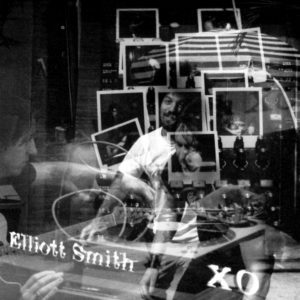 Elliott Smith – “Waltz #2 (XO)”
Elliott Smith – “Waltz #2 (XO)” Built To Spill – “You Were Right”
Built To Spill – “You Were Right” Jimmy Eat World – “A Praise Chorus”
Jimmy Eat World – “A Praise Chorus”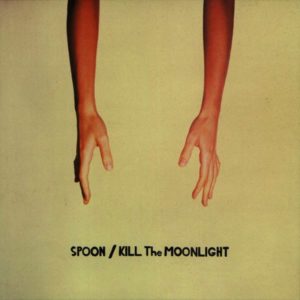 Spoon – “The Way We Get By”
Spoon – “The Way We Get By” Okkervil River – “Plus Ones”
Okkervil River – “Plus Ones” The Hold Steady – “Constructive Summer”
The Hold Steady – “Constructive Summer”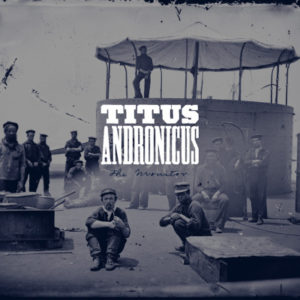 Titus Andronicus – “A More Perfect Union”
Titus Andronicus – “A More Perfect Union”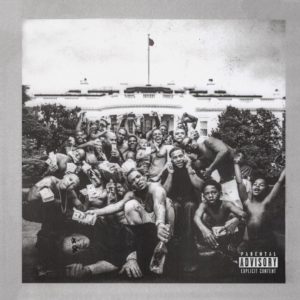 Kendrick Lamar – “King Kunta”
Kendrick Lamar – “King Kunta”
Cool list. The HS’s “Separation Sunday” has a couple of mindblowers, too; specifically: “She mouthed the words along to ‘Running Up That Hill,’ that song got scratched into her soul. And he never heard the song before, but he still got the metaphor, yeah he knew some people that switched places before.” I mean, holy shit. Oh, also: “Tramps like us, and we like tramps.” Craig Finn is on another level, especially on that album.
Yes, Hold Steady Holds the record for one band referencing another. “Half the crowd is calling out for BORN TO RUN (Springsteen) the other half is calling out for Born to lose (Social Distortion).”
I thing the record for referencing other titles is probably Anodyne Dream by GANGgajang, which has around 60 other songs mentioned.